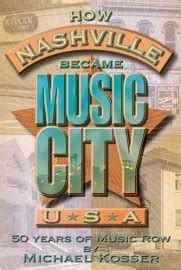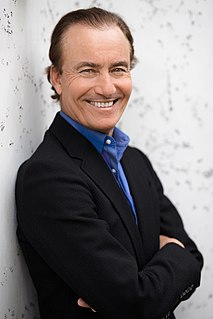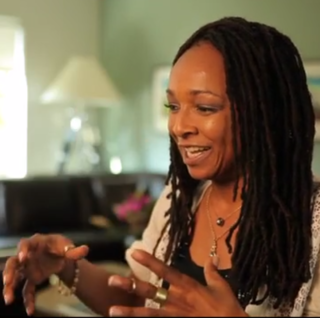Top 917 Publishing Quotes & Sayings - Page 16
Explore popular Publishing quotes.
Last updated on November 9, 2024.
One observer commenting on security analysts over forty stated: "They know too many things that are no longer true." As long as I am "on stage", publishing a regular record and assuming responsibility for management of what amounts to virtually 100% of the net worth of many partners, I will never be able to put sustained effort into any non-BPL activity. If I am going to participate publicly. I can't help being competitive. I know I don't want to be totally occupied with out-pacing an investment rabbit all my life. The only way to slow down is to stop.
The maiden Olympics had more to protest about than mere war, though. Central to its ethos was a rejection of two establishments the political one, certainly, but also that of the wider poetry world itself. It changed poetry for ever in the UK, ... It led to readings all over the country. You suddenly got more women reading and publishing poems, as well as gay guys and poets from all over the world. Until that time, published poetry had been very university-based white, male, middle-class. We were trying to break poetry out of its academic confines.
Despite wanting to work in publishing, I was a publisher's worst nightmare: I rarely bought new books. So my goal was to publish the kind of books I would buy, and read. My reading habits have changed since starting the press. The only other "goal", per say, is to continue to experiment. I don't want the press to ever fall into a formula, or to be pigeonholed - "They do great reissues of modernist poets!" - I want to keep pushing, exploring the kind of title we can get away with. And working with authors who challenge the way I think about writing, editing and reading.
Indeed, being a beginner is very difficult right now. Book publishers are in a crisis, sales are dwindling, and publishing houses are losing money, doing their best to survive. It's a sign of the times, the emergence of new kinds of entertainment -- there's nothing we can do about it. I don't think books will perish for good. They could become less widespread, though, falling even further behind movies and computer games. But we shouldn't be afraid of this, because books will always remain the entertainment of choice for intelligent people, of whom there are still many in this world.
At the time, liberals didn't understand that they had First Amendment rights. So, I was doing cartoons in this narrative cartoon form about subject surrounding that and as I was turned down by editor after editor at each publishing house, I began to notice on their desks this new newspaper called The Village Voice, which I then went and picked up and thought, well my god, these editors that were turning me down all, whom tell me how much they like my stuff, but they don't know how to market it because nobody knows who I am. If I got into this paper, they would know who I am.
It's interesting to me that really one of the first things she [Eleanor Roosevelt]did as First Lady was to collect her father's letters and publish a book called The Letters of My Father, essentially, hunting big game, The Letters of Elliott Roosevelt. And it really was an act of redemption, really one of her first acts of redemption as she entered the White House. She was going to redeem her father's honor. And publishing his letters, reconnecting with her childhood really fortified her to go on into the difficult White House years.
During the process of writing the book, I had this experience that was telling for me. I got it and the basic idea and got the plots and everything, but I wasn't sure who the audience was. I exist in this other world - in the book publishing and magazine world of people who would make fun of this project. We were driving home after two weeks in Maine, and we stopped in a gas station in Massachusetts and saw that Snooki had just been arrested. It was a surreal moment. My last few weeks were spent trying to get in this person's head, and there she was in on the cover of the New York Post .
Publishing a book is a great thing, and I'm grateful, but it's also a horrible, exposing thing. Once you've published a book, you never write quite as freely again. You're aware, from that point onward, of the kinds of things critics might say about it. You're aware of the kinds of things your publishers might like and dislike about it. You're half-aware of marketing strategies - of all the stuff around the book. Whereas with your very first piece of fiction, if you're lucky, those things barely occur to you at all.
That is what diminishes the artist and his song. The artist is now hermetically sealed. The publishing company got him his deal and they expect to profit from his songs. So what if he is a better singer than a songwriter; let's put him in a room with a real songwriter. Something great is bound to come...except very often nothing great comes out of such contrived match-ups. Nobody knows where a great song comes from, and that's why so many writers credit the Lord as a co-writer (though I notice they never offer Him half the writer's royalties) when they come up with a real gem.
Wrong' training can be a very innocent thing. Consider a father who allows his child to read good books. That child may soon cease to watch television or go to the movies, nor will he eventually read Book-of-the-Month Club selections, because they are ludicrous and dull. As a young man, then, he will effectually be excluded from all of Madison Avenue and Hollywood and most of publishing, because what moves him or what he creates is quite irrelevant to what is going on: it is too fine. His father has brought him up as a dodo.
We need prizes as publishers... to focus attention on books, for people to know what to go look for. But often in my opinion and in probably everyone's opinion, the right books don't get chosen. Still we need books to be chosen even if they are not exactly the right ones, otherwise many people won't know what to read. As a publisher, I feel prizes are important for the publishing business. But as a writer, I think, writers shouldn't get too distracted by prizes because very often they don't go to the right person. You shouldn't take it too seriously if you haven't won a prize.
I started as an artist and I had a side job moving some heavy boxes for a publishing company. They had just gotten a Mac for their art department, the department that creates the book covers. I was kind of showing the art director a thing or two about how to use a Mac. And one day everyone went out to lunch and I jumped on the computer and designed a book jacket and slipped it in the pile to go to the review board in New York. They picked my jacket and when the art director got back to Boston, he wanted to know who designed it and I said, "Me." He was like, "The box guy?"
When I started graduate school we did this publishing class where we learned about submitting and read interviews with editors from different magazines. A lot of them said they got so many submissions that unless the first page stuck out or the first paragraph or even the first sentence they'll probably send it back. So part of my idea was that if I have a really good first sentence maybe they'll read on a bit further. At least half, maybe more of the stories in Knockemstiff started with the first sentence; I got it down then went from there.
I thought, 'Okay, what's going to be my edge, and how am I going to define what I'm doing differently?' Once I had that key idea of the software developer as an artist, once I had that idea, a whole bunch of other ideas flowed from that, because I realized that I need to go study the music industry, I need to study the book publishing and Hollywood and figure out how they do things, why they do them that way, and then I need to borrow, and rearrange, the things that they're doing to fit my industry so that I can invent and create this new industry.
I shall never pay a dollar of your unjust penalty. All the stock in trade I possess is a $10,000 debt, incurred by publishing my paper - The Revolution - four years ago, the sole object of which was to educate all women to do precisely as I have done, rebel against your man-made, unjust, unconstitutional forms of law, that tax, fine, imprison and hang women, while they deny them the right of representation in the government... And I shall earnestly and persistently continue to urge all women to the practical recognition of the old revolutionary maxim, that "Resistance to tyranny is obedience to God."
What happened was I was a songwriter on Quincy Jones' publishing company, Qwest, for two and a half years before I gave him the song for Michael Jackson. He had a meeting with the songwriters. I think there were about six of us on the West Coast and we all had a meeting at his house where he sort of gave us an outline of what he wanted. To finish this BAD album Jones needed one more song to round out the album. I took notes and then I then took my notes to my writing partner Glen Ballard.
I feel like I have more experience with publishing humor than pretty much any editor I'm going to be dealing with so sometimes I'll get a little bit nuts if I write something I know is good a certain way, and some editor because of some restriction he has and wants to change it that I know is going to make it less funny that'll piss me off and then I'm inclined to go, "Well, hey I've been doing this a long time, maybe you should..." That doesn't happen that often, but I'm more likely to say that now than I would have been a long time ago. Because dammit, I'm infallible!
















